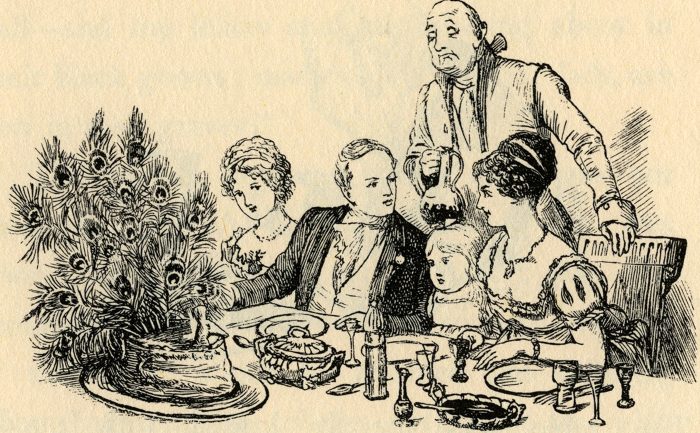The Mysterious Mansion by Honoré De Balzac
 Honore de Balzac vanvn 1
Honore de Balzac vanvn 1The Mysterious Mansion by Honoré De Balzac : In this Poe-like tale, set in “an old grey house,” a man exacts a bizarre revenge on his unfaithful wife and her lover. This chilling tale is one of Balzac’s most popular short stories.
The Mysterious Mansion by Honoré De Balzac

The Mysterious Mansion by Honoré De Balzac
About a hundred yards from the town of Vendôme, on the borders of the Loire, there is an old gray house, surmounted by very high gables, and so completely isolated that neither tanyard nor shabby hostelry, such as you may find at the entrance to all small towns, exists in its immediate neighborhood.
In front of this building, overlooking the river, is a garden, where the once well-trimmed box borders that used to define the walks now grow wild as they list. Several willows that spring from the Loire have grown as rapidly as the hedge that encloses it, and half conceal the house. The rich vegetation of those weeds that we call foul adorns the sloping shore. Fruit trees, neglected for the last ten years, no longer yield their harvest, and their shoots form coppices. The wall-fruit grows like hedges against the walls. Paths once graveled are overgrown with moss, but, to tell the truth, there is no trace of a path.
From the height of the hill, to which cling the ruins of the old castle of the Dukes of Vendôme, the only spot whence the eye can plunge into this enclosure, it strikes you that, at a time not easy to determine, this plot of land was the delight of a country gentleman, who cultivated roses and tulips and horticulture in general, and who was besides a lover of fine fruit. An arbor is still visible, or rather the débris of an arbor, where there is a table that time has not quite destroyed.
The aspect of this garden of bygone days suggests the negative joys of peaceful, provincial life, as one might reconstruct the life of a worthy tradesman by reading the epitaph on his tombstone. As if to complete the sweetness and sadness of the ideas that possess one’s soul, one of the walls displays a sun-dial decorated with the following commonplace Christian inscription: “Ultimam cogita!”
The roof of this house is horribly dilapidated, the shutters are always closed, the balconies are covered with swallows’ nests, the doors are perpetually shut, weeds have drawn green lines in the cracks of the flights of steps, the locks and bolts are rusty. Sun, moon, winter, summer, and snow have worn the paneling, warped the boards, gnawed the paint. The lugubrious silence which reigns there is only broken by birds, cats, martins, rats and mice, free to course to and fro, to fight and to eat each other. Everywhere an invisible hand has graven the word mystery.
Should your curiosity lead you to glance at this house from the side that points to the road, you would perceive a great door which the children of the place have riddled with holes. I afterward heard that this door had been closed for the last ten years. Through the holes broken by the boys you would have observed the perfect harmony that existed between the façades of both garden and courtyard. In both the same disorder prevails. Tufts of weed encircle the paving-stones. Enormous cracks furrow the walls, round whose blackened crests twine the thousand garlands of the pellitory. The steps are out of joint, the wire of the bell is rusted, the spouts are cracked.
What fire from heaven has fallen here? What tribunal has decreed that salt should be strewn on this dwelling? Has God been blasphemed, has France been here betrayed? These are the questions we ask ourselves, but get no answer from the crawling things that haunt the place. The empty and deserted house is a gigantic enigma, of which the key is lost. In bygone times it was a small fief, and bears the name of the Grande Bretêche.
I inferred that I was not the only person to whom my good landlady had communicated the secret of which I was to be the sole recipient, and I prepared to listen.
“Sir,” she said, “when the Emperor sent the Spanish prisoners of war and others here, the Government quartered on me a young Spaniard who had been sent to Vendôme on parole. Parole notwithstanding he went out every day to show himself to the sous-préfet.
He was a Spanish grandee! Nothing less! His name ended in os and dia, something like Burgos de Férédia. I have his name on my books; you can read it if you like. Oh! but he was a handsome young man for a Spaniard; they are all said to be ugly. He was only five feet and a few inches high, but he was well-grown; he had small hands that he took such care of; ah! you should have seen! He had as many brushes for his hands as a woman for her whole dressing apparatus! He had thick black hair, a fiery eye, his skin was rather bronzed, but I liked the look of it.
He wore the finest linen I have ever seen on any one, although I have had princesses staying here, and, among others, General Bertrand, the Duke and Duchess d’Abrantés, Monsieur Decazes, and the King of Spain. He didn’t eat much; but his manners were so polite, so amiable, that one could not owe him a grudge. Oh! I was very fond of him, although he didn’t open his lips four times in the day, and it was impossible to keep up a conversation with him.
For if you spoke to him, he did not answer. It was a fad, a mania with them all, I heard say. He read his breviary like a priest, he went to Mass and to all the services regularly. Where did he sit? Two steps from the chapel of Madame de Merret. As he took his place there the first time he went to church, nobody suspected him of any intention in so doing. Besides, he never raised his eyes from his prayer-book, poor young man!
After that, sir, in the evening he would walk on the mountains, among the castle ruins. It was the poor man’s only amusement, it reminded him of his country. They say that Spain is all mountains!
From the commencement of his imprisonment he stayed out late. I was anxious when I found that he did not come home before midnight; but we got accustomed to this fancy of his. He took the key of the door, and we left off sitting up for him. He lodged in a house of ours in the Rue des Casernes. After that, one of our stable-men told us that in the evening when he led the horses to the water, he thought he had seen the Spanish grandee swimming far down the river like a live fish.
When he returned, I told him to take care of the rushes; he appeared vexed to have been seen in the water. At last, one day, or rather one morning, we did not find him in his room; he had not returned. After searching everywhere, I found some writing in the drawer of a table, where there were fifty gold pieces of Spain that are called doubloons and were worth about five thousand francs; and ten thousand francs’ worth of diamonds in a small sealed box.
The writing said, that in case he did not return, he left us the money and the diamonds, on condition of paying for Masses to thank God for his escape, and for his salvation. In those days my husband had not been taken from me; he hastened to seek him everywhere.
“And now for the strange part of the story. He brought home the Spaniard’s clothes, that he had discovered under a big stone, in a sort of pilework by the river-side near the castle, nearly opposite to the Grande Bretêche. My husband had gone there so early that no one had seen him. After reading the letter, he burned the clothes, and according to Count Fédéria’s desire we declared that he had escaped. The sous-préfet sent all the gendarmerie in pursuit of him; but brust! they never caught him.
Lepas believed that the Spaniard had drowned himself. I, sir, don’t think so; I am more inclined to believe that he had something to do with the affair of Madame de Merret, seeing that Rosalie told me that the crucifix, that her mistress thought so much of, that she had it buried with her, was of ebony and silver. Now in the beginning of his stay here, Monsieur de Fédéria had one in ebony and silver, that I never saw him with later. Now, sir, don’t you consider that I need have no scruples about the Spaniard’s fifteen thousand francs, and that I have a right to them?”
“Certainly; but you haven’t tried to question Rosalie?” I said.
“Oh, yes, indeed, sir; but to no purpose! the girl’s like a wall. She knows something, but it is impossible to get her to talk.”
After exchanging a few more words with me, my landlady left me a prey to vague and gloomy thoughts, to a romantic curiosity, and a religious terror not unlike the profound impression produced on us when by night, on entering a dark church, we perceive a faint light under high arches; a vague figure glides by–the rustle of a robe or cassock is heard, and we shudder.
Suddenly the Grande Bretêche and its tall weeds, its barred windows, its rusty ironwork, its closed doors, its deserted apartments, appeared like a fantastic apparition before me. I essayed to penetrate the mysterious dwelling, and to find the knot of its dark story–the drama that had killed three persons. In my eyes Rosalie became the most interesting person in Vendôme.
As I studied her, I discovered the traces of secret care, despite the radiant health that shone in her plump countenance. There was in her the germ of remorse or hope; her attitude revealed a secret, like the attitude of a bigot who prays to excess, or of the infanticide who ever hears the last cry of her child. Yet her manners were rough and ingenuous–her silly smile was not that of a criminal, and could you but have seen the great kerchief that encompassed her portly bust, framed and laced in by a lilac and blue cotton gown, you would have dubbed her innocent.
No, I thought, I will not leave Vendôme without learning the history of the Grande Bretêche. To gain my ends I will strike up a friendship with Rosalie, if needs be. “Rosalie,” said I, one evening.
“Sir?”
“You are not married?”
She started slightly.
“Oh, I can find plenty of men, when the fancy takes me to be made miserable,” she said, laughing.
She soon recovered from the effects of her emotion, for all women, from the great lady to the maid of the inn, possess a composure that is peculiar to them.
“You are too good-looking and well favored to be short of lovers. But tell me, Rosalie, why did you take service in an inn after leaving Madame de Merret? Did she leave you nothing to live on?”
“Oh, yes! But, sir, my place is the best in all Vendôme.”
The reply was one of those that judges and lawyers would call evasive. Rosalie appeared to me to be situated in this romantic history like the square in the midst of a chessboard. She was at the heart of the truth and chief interest; she seemed to me to be bound in the very knot of it. The conquest of Rosalie was no longer to be an ordinary siege–in this girl was centered the last chapter of a novel, therefore from this moment Rosalie became the object of my preference.
One morning I said to Rosalie: “Tell me all you know about Madame de Merret.”
“Oh!” she replied in terror, “do not ask that of me, Monsieur Horace.”
Her pretty face fell–her clear, bright color faded–and her eyes lost their innocent brightness.
“Well, then,” she said, at last, “if you must have it so, I will tell you about it; but promise to keep my secret!”
“Done! my dear girl, I must keep your secret with the honor of a thief, which is the most loyal in the world.”
Were I to transcribe Rosalie’s diffuse eloquence faithfully, an entire volume would scarcely contain it; so I shall abridge.
The room occupied by Madame de Merret at the Bretêche was on the ground floor. A little closet about four feet deep, built in the thickness of the wall, served as her wardrobe. Three months before the eventful evening of which I am about to speak, Madame de Merret had been so seriously indisposed that her husband had left her to herself in her own apartment, while he occupied another on the first floor. By one of those chances that it is impossible to foresee, he returned home from the club (where he was accustomed to read the papers and discuss politics with the inhabitants of the place) two hours later than usual.
His wife supposed him to be at home, in bed and asleep. But the invasion of France had been the subject of a most animated discussion; the billiard-match had been exciting, he had lost forty francs, an enormous sum for Vendôme, where every one hoards, and where manners are restricted within the limits of a praiseworthy modesty, which perhaps is the source of the true happiness that no Parisian covets.
For some time past Monsieur de Merret had been satisfied to ask Rosalie if his wife had gone to bed; and on her reply, which was always in the affirmative, had immediately gained his own room with the good temper engendered by habit and confidence. On entering his house, he took it into his head to go and tell his wife of his misadventure, perhaps by way of consolation.
At dinner he found Madame de Merret most coquettishly attired. On his way to the club it had occurred to him that his wife was restored to health, and that her convalescence had added to her beauty. He was, as husbands are wont to be, somewhat slow in making this discovery.
Instead of calling Rosalie, who was occupied just then in watching the cook and coachman play a difficult hand at brisque, Monsieur de Merret went to his wife’s room by the light of a lantern that he deposited on the first step of the staircase. His unmistakable step resounded under the vaulted corridor.
At the moment that the Count turned the handle of his wife’s door, he fancied he could hear the door of the closet I spoke of close; but when he entered Madame de Merret was alone before the fireplace. The husband thought ingenuously that Rosalie was in the closet, yet a suspicion that jangled in his ear put him on his guard. He looked at his wife and saw in her eyes I know not what wild and hunted expression.
“You are very late,” she said. Her habitually pure, sweet voice seemed changed to him. Monsieur de Merret did not reply, for at that moment Rosalie entered. It was a thunderbolt for him. He strode about the room, passing from one window to the other, with mechanical motion and folded arms.
“Have you heard bad news, or are you unwell?” inquired his wife timidly, while Rosalie undressed her.
He kept silent.
“You can leave me,” said Madame de Merret to her maid; “I will put my hair in curl papers myself.”
From the expression of her husband’s face she foresaw trouble, and wished to be alone with him. When Rosalie had gone, or was supposed to have gone (for she stayed in the corridor for a few minutes), Monsieur de Merret came and stood in front of his wife, and said coldly to her:
“Madame, there is someone in your closet!” She looked calmly at her husband and replied simply:
“No, sir.”
This answer was heartrending to Monsieur de Merret; he did not believe in it. Yet his wife had never appeared to him purer or more saintly than at that moment. He rose to open the closet door; Madame de Merret took his hand, looked at him with an expression of melancholy, and said in a voice that betrayed singular emotion:
“If you find no one there, remember this, all will be over between us!” The extraordinary dignity of his wife’s manner restored the Count’s profound esteem for her, and inspired him with one of those resolutions that only lack a vaster stage to become immortal.
“No,” said he, “Josephine, I will not go there. In either case it would separate us forever. Hear me, I know how pure you are at heart, and that your life is a holy one. You would not commit a mortal sin to save your life.”
At these words Madame de Merret turned a haggard gaze upon her husband.
“Here, take your crucifix,” he added. “Swear to me before God that there is no one in there; I will believe you, I will never open that door.”
Madame de Merret took the crucifix and said:
“I swear.”
“Louder,” said the husband, “and repeat ‘I swear before God that there is no one in that closet’.”
She repeated the sentence calmly.
“That will do,” said Monsieur de Merret, coldly.
After a moment of silence:
“I never saw this pretty toy before,” he said, examining the ebony crucifix inlaid with silver, and most artistically chiseled.
“I found it at Duvivier’s, who bought it of a Spanish monk when the prisoners passed through Vendôme last year.”
“Ah!” said Monsieur de Merret, as he replaced the crucifix on the nail, and he rang. Rosalie did not keep him waiting. Monsieur de Merret went quickly to meet her, led her to the bay window that opened on to the garden and whispered to her:
“Listen! I know that Gorenflot wishes to marry you, poverty is the only drawback, and you told him that you would be his wife if he found the means to establish himself as a master mason. Well! go and fetch him, tell him to come here with his trowel and tools. Manage not to awaken any one in his house but himself; his fortune will be more than your desires. Above all, leave this room without babbling, otherwise–” He frowned. Rosalie went away, he recalled her.
“Here, take my latchkey,” he said. “Jean!” then cried Monsieur de Merret, in tones of thunder in the corridor. Jean, who was at the same time his coachman and his confidential servant, left his game of cards and came.
“Go to bed, all of you,” said his master, signing to him to approach; and the Count added, under his breath: “When they are all asleep–asleep, d’ye hear?–you will come down and tell me.” Monsieur de Merret, who had not lost sight of his wife all the time he was giving his orders, returned quietly to her at the fireside and began to tell her of the game of billiards and the talk of the club. When Rosalie returned she found Monsieur and Madame de Merret conversing very amicably.
The Count had lately had all the ceilings of his reception rooms on the ground floor repaired. Plaster of Paris is difficult to obtain in Vendôme; the carriage raises its price. The Count had therefore bought a good deal, being well aware that he could find plenty of purchasers for whatever might remain over. This circumstance inspired him with the design he was about to execute.
“Sir, Gorenflot has arrived,” said Rosalie in low tones.
“Show him in,” replied the Count in loud tones.
Madame de Merret turned rather pale when she saw the mason.
“Gorenflot,” said her husband, “go and fetch bricks from the coachhouse, and bring sufficient to wall up the door of this closet; you will use the plaster I have over to coat the wall with.” Then calling Rosalie and the workman aside:
“Listen, Gorenflot,” he said in an undertone, “you will sleep here to-night. But to-morrow you will have a passport to a foreign country, to a town to which I will direct you. I shall give you six thousand francs for your journey. You will stay ten years in that town; if you do not like it, you may establish yourself in another, provided it be in the same country. You will pass through Paris, where you will await me.
There I will insure you an additional six thousand francs by contract, which will be paid to you on your return, provided you have fulfilled the conditions of our bargain. This is the price for your absolute silence as to what you are about to do to-night. As to you, Rosalie, I will give you ten thousand francs on the day of your wedding, on condition of your marrying Gorenflot; but if you wish to marry, you must hold your tongues; or–no dowry.”
“Rosalie,” said Madame de Merret, “do my hair.”
The husband walked calmly up and down, watching the door, the mason, and his wife, but without betraying any insulting doubts. Madame de Merret chose a moment when the workman was unloading bricks and her husband was at the other end of the room to say to Rosalie: “A thousand francs a year for you, my child, if you can tell Gorenflot to leave a chink at the bottom.” Then out loud, she added coolly:
“Go and help him!”
Monsieur and Madame de Merret were silent all the time that Gorenflot took to brick up the door. This silence, on the part of the husband, who did not choose to furnish his wife with a pretext for saying things of a double meaning, had its purpose; on the part of Madame de Merret it was either pride or prudence. When the wall was about half-way up, the sly workman took advantage of a moment when the Count’s back was turned, to strike a blow with his trowel in one of the glass panes of the closet-door. This act informed Madame de Merret that Rosalie had spoken to Gorenflot.
All three then saw a man’s face; it was dark and gloomy with black hair and eyes of flame. Before her husband turned, the poor woman had time to make a sign to the stranger that signified: Hope!
At four o’clock, toward dawn, for it was the month of September, the construction was finished. The mason was handed over to the care of Jean, and Monsieur de Merret went to bed in his wife’s room.
On rising the following morning, he said carelessly:
“The deuce! I must go to the Mairie for the passport.” He put his hat on his head, advanced three steps toward the door, altered his mind and took the crucifix.
His wife trembled for joy. “He is going to Duvivier,” she thought. As soon as the Count had left, Madame de Merret rang for Rosalie; then in a terrible voice:
“The trowel, the trowel!” she cried, “and quick to work! I saw how Gorenflot did it; we shall have time to make a hole and to mend it again.”
In the twinkling of an eye, Rosalie brought a sort of mattock to her mistress, who with unparalleled ardor set about demolishing the wall. She had already knocked out several bricks and was preparing to strike a more decisive blow when she perceived Monsieur de Merret behind her. She fainted.
“Lay Madame on her bed,” said the Count coldly. He had foreseen what would happen in his absence and had set a trap for his wife; he had simply written to the mayor, and had sent for Duvivier. The jeweller arrived just as the room had been put in order.
“Duvivier,” inquired the Count, “did you buy crucifixes of the Spaniards who passed through here?”
“No, sir.”
“That will do, thank you,” he said, looking at his wife like a tiger. “Jean,” he added, “you will see that my meals are served in the Countess’s room; she is ill, and I shall not leave her until she has recovered.”
The cruel gentleman stayed with his wife for twenty days. In the beginning, when there were sounds in the walled closet, and Josephine attempted to implore his pity for the dying stranger, he replied, without permitting her to say a word:
“You have sworn on the cross that there is no one there.”
THE END
Best Honoré De Balzac Books to Read
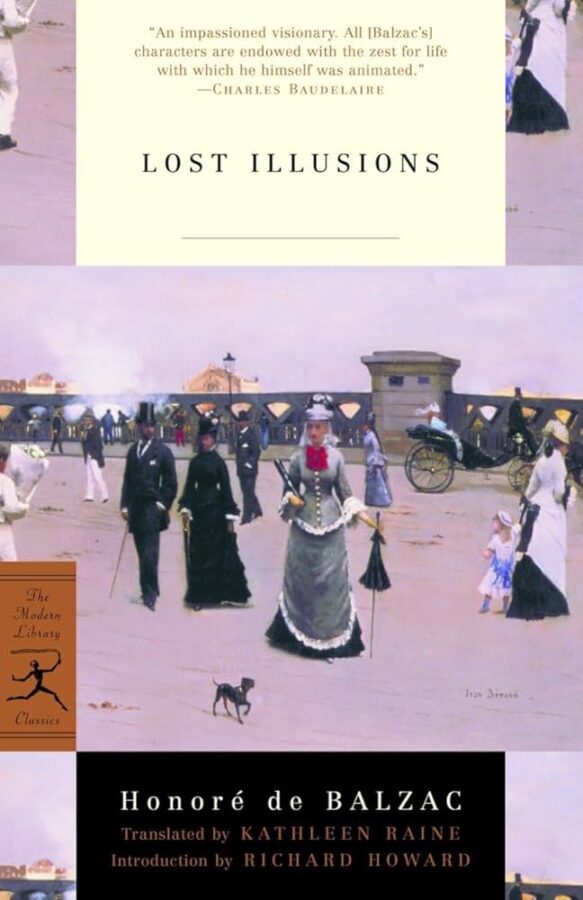
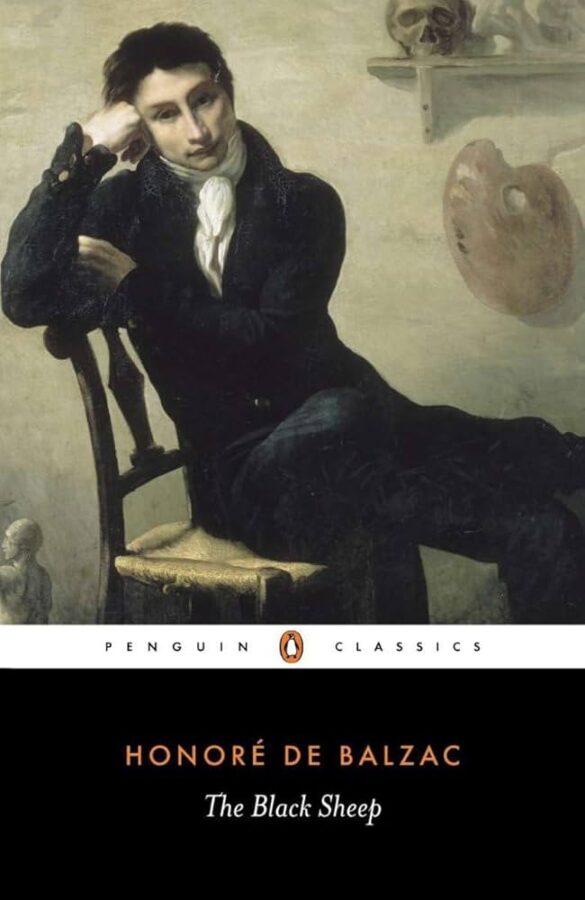
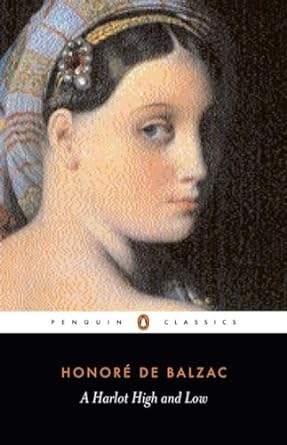
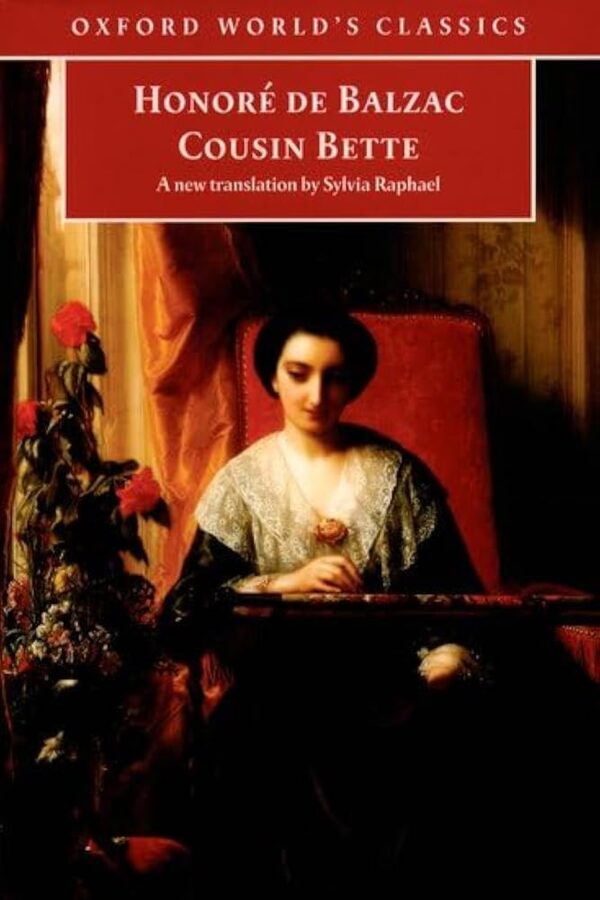
If you enjoyed The Mysterious Mansion by Honoré De Balzac short story, check out our recommendations for the Best Short Story Authors to Read.
Narrated by Chiquito Crasto, courtesy of Libravox.org









